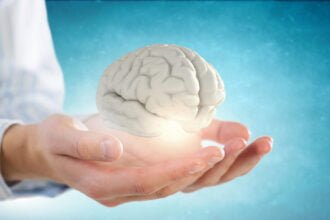Substance abuse is a challenging and complex condition to overcome. It affects around 10% of the US population and knows no demographic bounds. If you or a loved one are looking into healing an addiction problem, you may know many forms of treatment are available. This overview of addiction treatment levels may help you decide if treatment is a good option in your situation.
1. Residential: Long Term
This most intensive level of care is a structured, comprehensive community setting that emphasizes healing relational and psychological challenges related to addiction. Social engagement and personal responsibility are common goals, and the duration of treatment ranges from six to 12 months. At this level, facilities often include in-depth psychological and counseling requirements, and many programs are based on an experiential component that is often nature or wilderness-based. This level of treatment is associated with the highest success rates compared to the other levels.
2. Residential: Short Term
This form of treatment is what many people picture when they think about addiction rehabilitation. Ranging from rustic shared rooms to luxury resort-like accommodations, these programs are not subject to standardization and vary in cost and programming. A San Antonio drug rehab will generally offer a program with a different structure and philosophy than a rehab down the road or one in Phoenix. Though the programming may differ, most rehabs operate as hospitals; they provide medical and psychiatric care as well as addiction treatment. Often 12-step approaches are incorporated, and most programs will include a strong counseling component. The duration of the programs is generally between three and eight weeks. The longer the duration, the more favorable the treatment outcomes.
3. Outpatient
Non-residential programs, also called outpatient treatment, consist of structured therapy and education groups, up to five times per week. Costs vary depending on the intensity and design of the treatment. Outpatient works best for people who have strong social or professional systems in place but need intermittent encouragement to remain abstinent from alcohol and other drugs. Severe addiction problems are not known to be treated successfully using an outpatient model.
4. Private Counseling
For individuals not using structured residential or outpatient treatment models, addiction counseling is available at a therapist’s private office. For those interested in keeping mildly addictive behaviors in check, this level may be adequate. Many rehab patients will be assigned private therapy after their residential treatment is finished. The focus of outpatient addiction counseling includes short-term behavioral goals and involvement in twelve-step work. Patients learn coping strategies that will enable them to maintain their sobriety. Deeper modalities are also available to patients wanting to address trauma, abuse or other more complex issues.
5. Criminal Diversion
Legal problems and substance abuse often co-exist. More and more, current incarceration models are incorporating addiction treatment into sentencing and contingency programs. These drug court models are growing in prevalence as they are believed to reduce recidivism and relapse rates. Sometimes an offender will be offered counseling or education in place of incarceration, altogether. Sometimes, the outcome is a combination of some jail time and some treatment. These programs have significantly increased successful outcomes, suggesting that incarceration, without treatment and counseling, is not a useful solution to the problem of addiction. If someone you know needs help with addiction, this overview may help you begin your search for the best treatment level. As the field of addiction identifies more programs that yield successful outcomes, more options emerge. The treatment range can accommodate severe addicts with existing life consequences as well as those concerned about mild substance use and wanting some education and support. Whatever degree of substance use is at play, help is available among these five levels of addiction treatment and rehabilitation.










